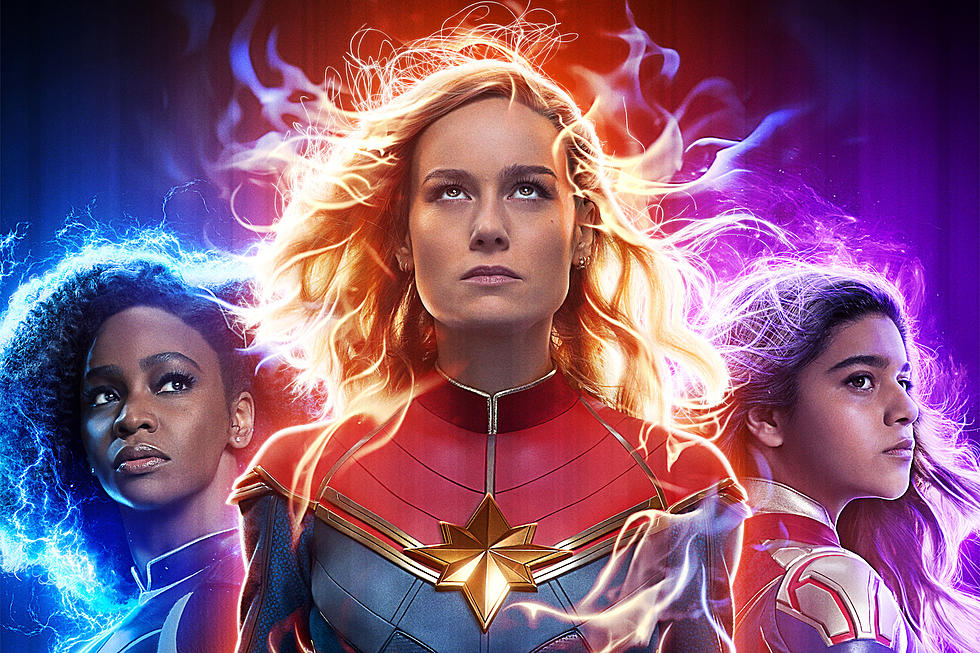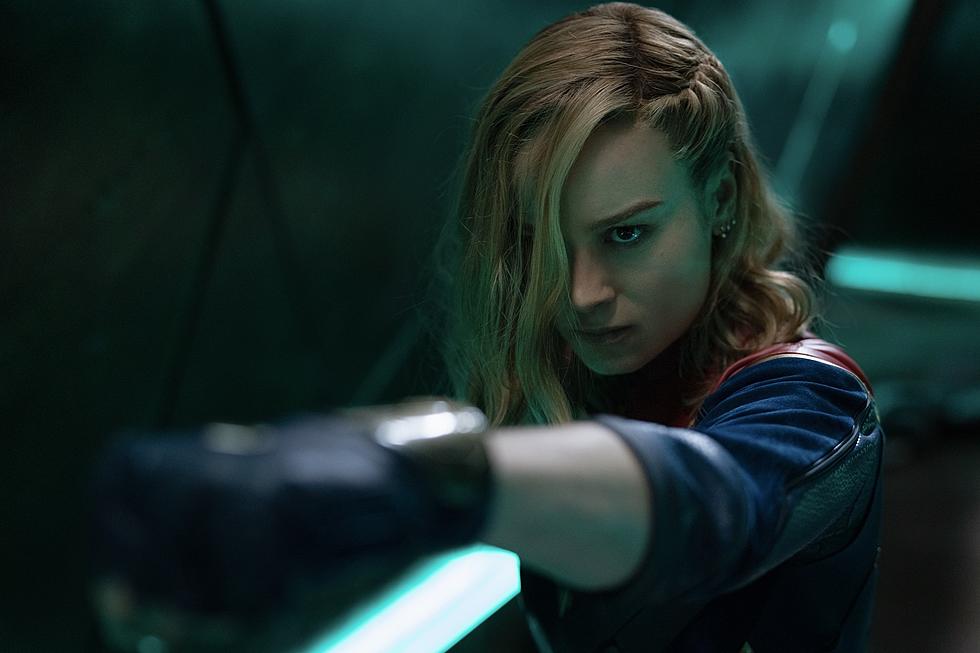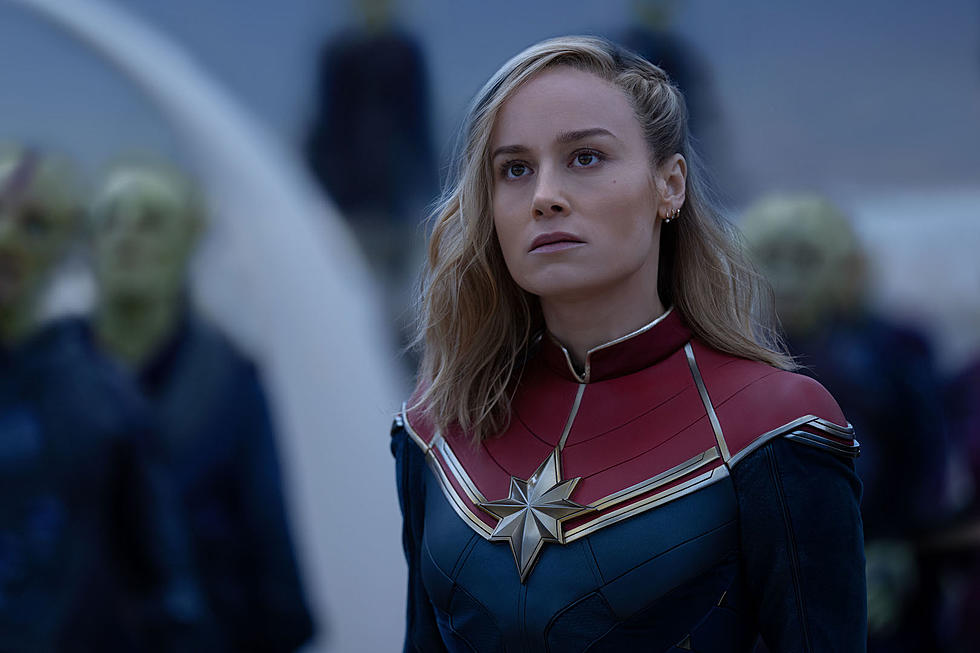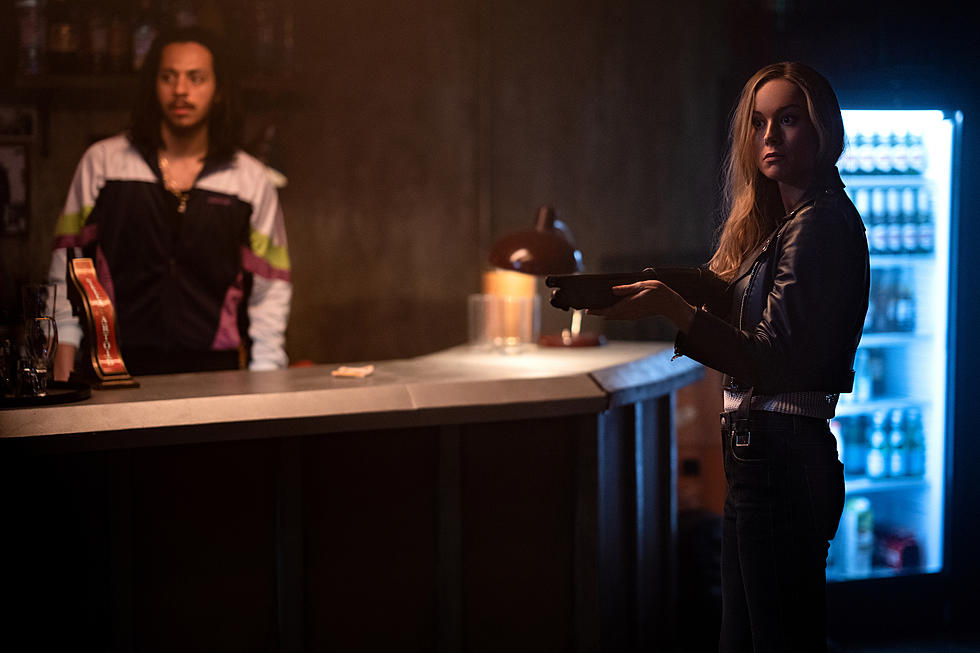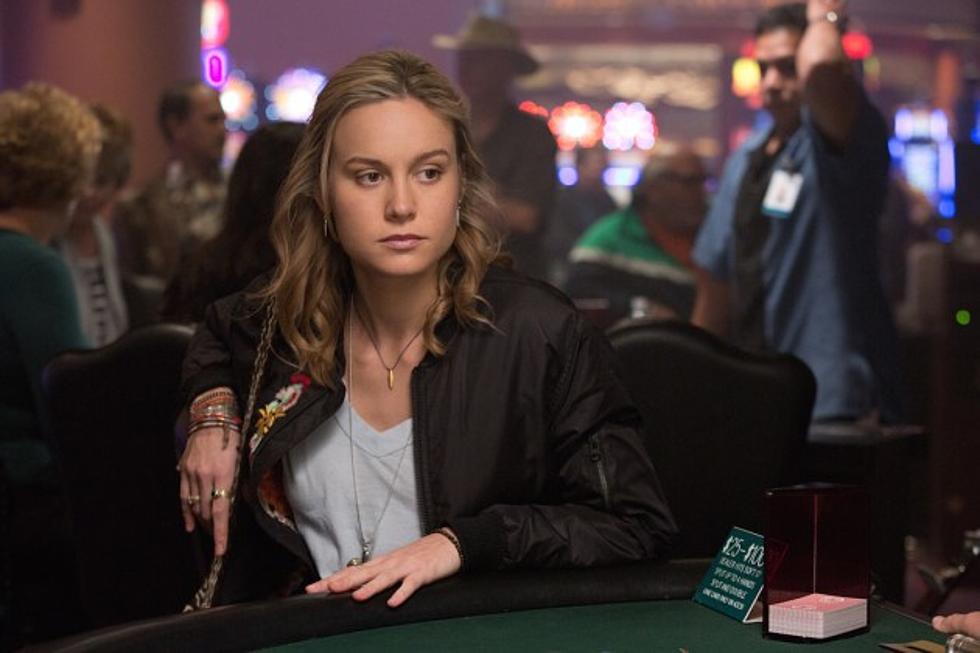
Brie Larson on ‘The Gambler’ and Having Control of Her Career By Admitting She Has No Control
The first thing you notice about Brie Larson is her unexpected height, forever putting her in my own personal “this actor was much taller than I expected” club, where she joins the likes of John Cusack and Colin Firth. The second is that she’s, pleasantly, a bit of an oddball, meant in the most endearing and interesting way possible. With a single answer, she has the ability to be aloof and on point at the exact same time. Larson seems to have it all figured out without even trying. In other words: She’s winning a game that even she admits is impossible to win.
It was 2013’s ‘Short Term 12’ that launched Larson onto the heralded list of respected actors, even though ‘Short Term 12’ grossed less than $2 million despite being named on practically every critical top ten list that year. Regardless, Larson was no longer the fourth lead in ’21 Jump Street,’ she became her own force to be reckoned with.
‘The Gambler’ is her first post-‘Short Term 12’ role. For people like me, it’s nice to envision that a movie like ‘Short Term 12’ can lead to offers in every Hollywood hot property, but Larson swears that’s not the case, but admits that she did have options (another one being a role in next summer’s Judd Apatow film, ‘Trainwreck’). In ‘The Gambler’—a loose remake of a 1974 movie starring James Caan—Larson plays Amy, a literary wunderkind who becomes romantically involved with her professor, Jim (Mark Wahlberg), a man hell-bent on gambling away all of his earthly possessions.
It’s an interesting time for Larson, but, as she admits, the only real control she has over her career is accepting that she has very little control.
You are a lot taller than I assumed you were.
I am pretty tall.
I have no idea why I assumed differently.
People don’t realize it because I don’t ever wear heels; today I’m wearing heels. And I slouch because usually people are not as tall as me and I like eye contact, so I slouch.
It goes against the notion that people in movies are shorter than you think they are.
Oh, is that true?
People will get an impression an actor is tall on a movie screen…
Oh, because you see them on these huge screens.
You and John Cusack are much taller than I expected.
Oh, he’s tall?
He’s like 6’2” or 6’3” I think.
Oh, I didn’t know that.
Before you did this role in ‘The Gambler,’ did you watch the original, or would you rather not?
Oh, no, I watched the original.
Can that somehow get in your head and mess you up?
No, in this case in particular, I don’t feel like it’s the same movie and it’s not trying to replicate anything. We’re just taking this sort of allegory and updating it.
It would have been funny if you showed up thinking it was a remake of the Kenny Rogers movie.
[Laughs] I don’t think I would have been cast.
“So this is in the Old West on a train bound for nowhere?”
People would have been really confused.
I mention this because a couple people have asked me, “So they are remaking the Kenny Rogers movie” and I have to explain that it’s not related.
Totally different movies.
Did you sign on for this before ‘Short Term 12’ or after?
After.
That seems like a very important moment in your career, where you could almost do anything you want.
That’s not true. There were more possibilities, but not like, “And here’s the candy store! Whatever you want!” It’s never really like that.
Do you feel like you have to choose carefully? There is momentum.
But I’ve always been so picky like that. It’s not like, “Oh, now I have to be picky.” I’ve always been really picky. I was born with this ridiculous responsibility, feeling the sense that I understand what film does and because I understand that, I believe in it and I respect it. I don’t like doing things that I don’t care about or keeps me interested. It takes a long time to make a movie, then I have days like this where I spend so much time talking to people about it, it’s so much nicer when you have interesting subjects to talk about.
As opposed to “I’m in a movie I don’t like”?
As opposed to maybe something that’s not as thought-provoking for me. I enjoy movies that are a little more ambiguous, that leave us some space to discuss and room for interpretation. Something like many different aspects of it so, when days like this come, or even the whole time you’re making the movie, you have so many things to talk about.
What is your interpretation of ‘The Gambler’?
Have you talked with everybody else?
No.
I’m so interested to hear what they say about it, because I’m sure we all have our own things as to why we agreed to this film [laughs]. For me, it’s a really old story. I mean, it’s Dostoevsky—I think it’s even earlier than that. We watch Jim go through seven days and, to me, it’s the story of going through the seven gates of hell. That’s what I thought: the traditional story of a person of wealth going through the seven gates of hell to get to the sister or the child. And as you go through the seven gates, you have to get rid of something. You have to give something up for the gate to open. Then you get to the end and there’s a rebirth.
I could see it being read that Jim doesn’t care about anything.
Well, I think there’s a misconception, or some people misread the film and they think, “Oh, this is a person who doesn’t care about anything.” No, no. This is a person who cares about the one true thing. He’s getting rid of all the things in his mind that are facades or illusions or chains that are getting in the way or become distractions to this one true thing.
In 2005 you released an album. Does music still interest you? Is that something you still want to do?
Yeah, it is something I still want to do. I’m always writing music.
Your profile as an actor raised after ‘Short Term 12.’ If you released an album now, there will be people who will say, “Well, now she wants it all”—maybe not even realizing you’ve done this before.
Yeah, I don’t really care. I don’t have room to care.
What’s that mean?
No, because, just like in the film, you don’t do what Jim did, which was write a book just because you think it’s what people like. That’s selling your soul. I don’t believe in it.
It’s nice to be liked.
Yeah, I mean, we all like to be liked, but what does that really get us in the end? I just don’t think it works that way. It will always end up—there will be a moment where I’m in a hotel room or at home or wherever I am with me, because wherever I go I’m with myself and I’ll feel empty. Because I can’t please people and I can’t tell people what the perception is of me. I have no control over it.
Have you felt like that recently? Because the perception about you right now seems quite good. I’ve never heard the sentence, “You know, that Brie Larson, I just don’t care for her acting.”
[Laughs] Well, that is so nice. But we can’t imagine it’s going to be like that forever.
No, you’re right.
Do you know what I mean?
A person becomes too famous then perception changes.
This is how it works.
How can everyone say, “Go see ‘Short Term 12,’” yet it still only made a little bit of money?
Yeah, it’s kind of like a miracle when [a small movie does really well].
I’m starting to think these miracles just don’t happen anymore.
But it has such a life beyond that one particular moment. During that process, I learned so much, though. It’s unquantifiable what brings someone into the theater. It even goes down to what the weather is like that weekend. How do we ever anticipate? When I wake up in the morning and I can choose anything for breakfast, maybe I’ll randomly pick pancakes. But maybe that night I thought about it and decided, “Maybe I want to make eggs,” but I wake up and I want pancakes. I have no mind control.
They should release breakfast results for every weekend.
[Laughs] “The top-grossing breakfasts of the weekend. Pancakes falling short...”
“Fruit Loops...”
“...Not doing as well.” It’s just, I don’t know, I think the further I get into the industry I find that the only thing that I can really control—and I’m putting quotations around that, because I still can’t control it—is making something good. And then it doesn’t matter.
I think you’ve demonstrated you do have some control over that.
But I don’t have the control over how it’s edited or the music or how it looks in the end. I could love a script and not get cast. There are so many factors that go into it that you start to realize all these billions of possibilities that could happen and you just have to laugh about it.
Judd Apatow’s ‘Trainwreck’ with Amy Schumer is your next movie. It’s hard to imagine that not being something else “good.”
Yeah, me either! But you can’t predict what’s going to happen. So, once you hit that point, it’s all rather amusing.
Mike Ryan has written for The Huffington Post, Wired, Vanity Fair and GQ. He is the senior editor of ScreenCrush. You can contact him directly on Twitter.
More From ScreenCrush


